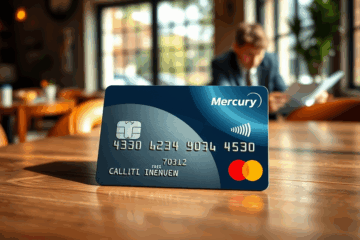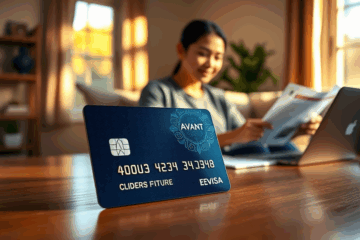Smart Tips for Credit Card Use Without Debt
Credit Card usage can be a double-edged sword, providing convenience and rewards while also posing the risk of incurring debt.
In this article, we will explore essential strategies for using a credit card responsibly, ensuring you reap the benefits without falling into the trap of financial pitfalls.
By adhering to key practices such as paying your balance in full, budgeting effectively, and understanding the intricacies of interest rates, you can maintain financial health and enjoy the advantages of credit.
Let’s delve into these tips that will empower you to use your credit card wisely.
Pay Your Balance in Full Each Month
Paying off your credit card balance in full each month really helps prevent excessive debt accumulation.
Using credit cards responsibly involves paying the full statement balance so you avoid the high-interest rates that typically accompany carried-over balances each month.
According to a credit expert at Experian, consistently settling your balance not only saves you money in interest but also enhances your credit profile.
This disciplined approach to managing credit demonstrates fiscal responsibility to lenders, which can improve your credit score over time.
There are several key advantages to settling your credit card balance every month.
Below is a relevant and concise list of benefits:
- Save on interest – By paying the full balance, you avoid accruing any interest charges.
- Maintain good credit health – Timely payments reflect positively on your credit report.
- Enhance future lending opportunities – A strong credit profile may help you secure loans with better terms.
Furthermore, keeping your credit utilization under control by staying below 30% of your credit limit seeks to not only improve but also stabilize your credit score.
These actions carve the path towards a solid financial future and enable you to approach credit usage consciously.
Remember, taking charge of your credit use today impacts your financial opportunities tomorrow.
Create and Stick to a Practical Budget
Maintaining a practical budget is essential for keeping credit card spending under control and avoiding debt pitfalls.
Budgeting helps you gain control of your finances, ensuring that you live within your means.
With discipline, you can reduce financial stress and save money for future needs.
Moreover, staying on budget allows you to use credit cards responsibly, maximizing their benefits without falling into debt traps.
- Track every expense daily: Keeping a close eye on each purchase helps identify spending patterns.
- Create spending categories: Allocate a portion of your budget to essential expenses and discretionary spending.
- Use budgeting tools: Consider using an app like AppName to automate tracking and receive spending alerts.
- Set a realistic limit: Define a cap for how much you use your credit card each month.
- Review your budget weekly: Regular reviews help you stay aligned with your financial goals.
- Adjust as needed: Life changes require budget adjustments. Be flexible and update your budget regularly.
Implementing these steps not only helps maintain a strong personal financial foundation but also empowers you to make informed spending decisions.
By utilizing resources like AppName for monitoring expenses and setting realistic limits, you can seamlessly integrate budgeting into your routine, ensuring you avoid unnecessary debt accumulation.
Know Your Card’s Cost Structure
Knowing your credit card’s cost structure is essential for maintaining a healthy financial lifestyle.
One critical component to understand is the Annual Percentage Rate (APR), which represents the yearly cost of carrying a balance if it’s not paid in full each month.
The APR is crucial because if ignored, it can lead to mounting debt due to interest accumulation on unpaid balances.
Furthermore, fees such as late payment charges and cash advance fees can significantly impact your financial situation.
These fees can accumulate quickly, so comprehending their implications is necessary to avoid unnecessary debt.
In order to fully grasp how these fees affect your budget, check out this simple comparison:
| Annual Percentage Rate (APR) | Cost when balance isn’t paid in full |
| Late Payment Fee | Cost for missing a payment deadline |
| Cash Advance Fee | Cost for withdrawing cash using your credit card |
It’s also wise to familiarize yourself with your card’s specific terms.
Using your card for everyday essentials while keeping your balance low can help maintain financial stability.
Resources like Khan Academy’s credit basics provide valuable insights into various aspects of credit utilization.
With increased awareness about these financial tools, you can make informed decisions that safeguard your financial well-being and avoid costly debt traps.
Keep Your Credit Utilization Ratio Low
Understanding credit utilization and its impact on your financial health is crucial for maintaining a strong credit score.
Your credit-utilization ratio measures how much of your available credit you’re using at any given time.
It’s important because it directly affects your credit score.
Experts recommend you Stay under 30 percent of your total credit limit.
Maintaining a low ratio reflects responsible use of credit and contributes positively to your credit score.
To achieve this, regularly monitor your credit card balances and aim to pay them down before your billing cycle ends.
It’s also advisable to make multiple payments throughout the month, rather than waiting for your statement due date.
Consider distributing expenses across multiple cards instead of maxing out a single card, which can also help keep your utilization ratio low.
If eligible, request a higher credit limit, but continue spending wisely.
As highlighted on Intuit Credit Karma’s guide, lowering your utilization significantly enhances your credit profile.
“Your credit utilization ratio is a key element in calculating credit scores, staying mindful of it can protect your financial future,” advises a financial expert.
Curb Impulse and Unnecessary Purchases
Impulse buying with a credit card can quickly lead to balances that are difficult to repay, but recognizing triggers and strategies can help you spend more mindfully.
Consider the practice of the 24-hour rule to curb impulse purchases.
Before buying, pause and give yourself a day to consider if it’s truly necessary.
Often, the urge to buy weakens after this reflection period.
Additionally, set clear spending limits on your credit card to avoid unexpected debt.
When making online purchases, delay and rethink big buys by removing saved credit card information to prevent quick transactions.
By creating these buffers, you can better manage spending and resist temptations.
Finding accountability can also strengthen your discipline to resist impulse buying.
Let a trusted friend or family member know about your financial goals so they can offer support and reminders.
When tempted, checking in with them can serve as a pause mechanism.
Moreover, focus on the benefits of mindful spending, such as increased savings and financial freedom.
By continually revisiting your long-term financial goals and the positive impact of financial discipline, you foster a healthier relationship with money and resist the cycle of unnecessary debt.
Credit Card management is crucial for maintaining a healthy financial life.
By following these tips, you can enjoy the benefits while avoiding debt and fostering good credit habits.
Remember, responsible usage is the key to financial success.



0 Comments